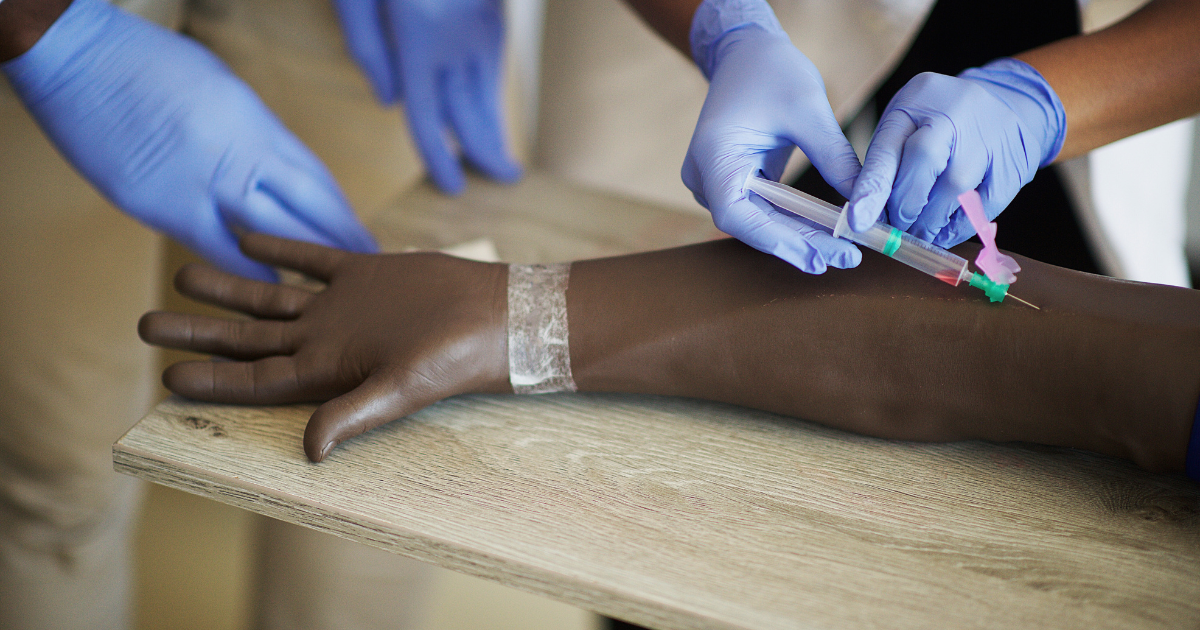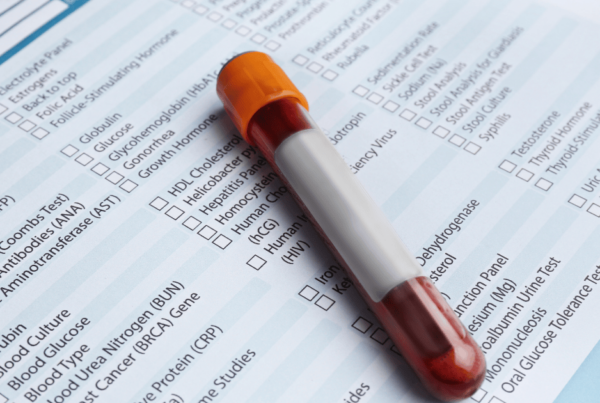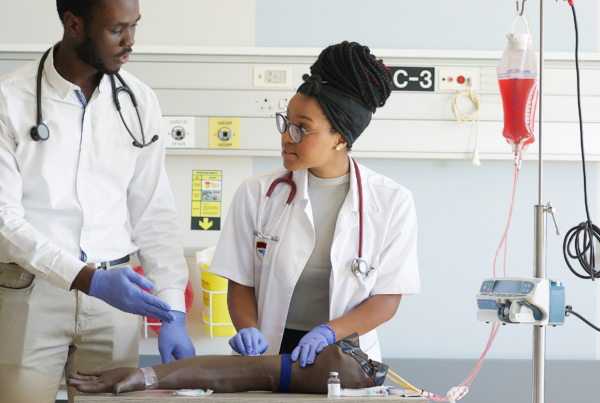Are you considering a career in healthcare and curious about what phlebotomists do? “Phlebotomy Basics” from Phlebotomy Now School is your comprehensive guide to understanding this crucial medical field. Discover the role of phlebotomy in medicine, the essential skills needed to excel, and the rewarding career paths available. Whether you’re looking for a new profession or simply interested in this vital practice, this resource offers valuable insights to start your journey.
| Key Takeaways: Phlebotomy Basics |
| Phlebotomy is a crucial healthcare practice involving the collection of blood samples for diagnostic and therapeutic purposes. |
| Phlebotomists perform essential tasks, including blood draws, sample preparation, patient interaction, and ensuring safety and hygiene. |
| The essential skills for phlebotomists include technical proficiency, meticulous attention to detail, manual dexterity, strong communication abilities, and organizational skills. |
| Educational requirements typically involve a high school diploma, completion of an accredited phlebotomy training program, and potentially certification from a recognized organization. |
Phlebotomy: A Cornerstone of Modern Medicine | Phlebotomy Basics
Phlebotomy is a crucial healthcare procedure that involves drawing blood from patients for various purposes. It plays a vital role in diagnosing and treating a wide range of medical conditions. Blood samples are analyzed to:
- Identify diseases: Blood tests can reveal infections, allergies, and other health problems.
- Monitor health conditions: Regular blood draws help track chronic conditions like diabetes or heart disease.
- Assess treatment effectiveness: Monitoring blood post-treatment helps determine if a medication is working.
Highly skilled professionals called phlebotomists perform these blood draws. They are trained to ensure patient comfort and safety while adhering to strict protocols that maintain the integrity of blood samples. Understanding phlebotomy basics is valuable not only for aspiring healthcare professionals but also for patients seeking a clearer picture of this essential practice.
Thinking of Becoming a Phlebotomist? Here’s What You Need to Know | Phlebotomy Basics
So you want to be a phlebotomist? Excellent choice! Phlebotomists are in high demand, and the profession offers a rewarding path with a positive job outlook. Let’s explore the skills and qualifications you’ll need to succeed:
- Education: The minimal educational requirement is a high school diploma or GED. Most employers require completion of an accredited phlebotomy training program, which typically lasts a few months.
- Certification: While not always mandatory, certification from organizations like the American Society for Clinical Pathology (ASCP) or the National Phlebotomy Association (NPA) can significantly enhance your job prospects.
- Essential Skills:
- Technical skills: Proficiency in blood draw techniques, equipment use, and proper sample handling.
- Attention to detail: Ensuring accuracy in labeling, patient identification, and documentation is crucial.
- Manual dexterity: Steady hands and precise control are essential for performing blood draws effectively.
- Communication skills: The ability to clearly explain procedures to patients, address concerns, and maintain a calm demeanor is vital.
- Organizational skills: Efficiently managing multiple tasks, including maintaining patient records and following protocols, is essential.
- Personal Attributes:
- Empathy and compassion: Phlebotomists understand patient anxieties and provide reassurance, especially to those with needle phobias.
- Patience and calmness: Maintaining composure in stressful situations is important.
- Professionalism: Adherence to ethical standards, patient confidentiality, and demonstrating reliability and integrity are essential qualities.
Phlebotomy Now School: Launch Your Phlebotomy Career Today
Considering a rewarding career in phlebotomy? Phlebotomy Now School can be your gateway to success. Our accredited training programs provide the knowledge and skills you need to become a certified phlebotomist. With a focus on practical experience and expert instructors, we’ll equip you to excel in this in-demand healthcare field. Contact us now to explore our programs and kickstart your phlebotomy journey today!
Demystifying the Phlebotomy Procedure | Phlebotomy Basics
A phlebotomy procedure involves a series of steps to ensure safe and efficient blood collection. Let’s explore a typical venipuncture (blood draw from a vein):
- Preparation: Gather supplies, verify patient identity, and perform hand hygiene.
- Patient Interaction: Explain the procedure and position the patient comfortably.
- Selecting the Site: Identify a suitable vein for access.
- Performing the Venipuncture: Clean the site, insert the needle at the correct angle, and collect the blood.
- Aftercare: Withdraw the needle, apply pressure to stop bleeding, bandage the site, and dispose of equipment properly.
Safety and hygiene are paramount throughout the phlebotomy process. By adhering to these procedures, phlebotomists ensure patient safety, sample integrity, and compliance with healthcare regulations.
Building a Fulfilling Career in Phlebotomy
A career in phlebotomy offers a rewarding path with excellent job growth potential:
- Growing demand: An aging population and increased emphasis on preventive healthcare are driving the need for skilled phlebotomists.
- Diverse work settings: Phlebotomists can work in hospitals, clinical laboratories, blood donation centers, and physician offices.
- Career advancement: With experience, phlebotomists can specialize in areas like pediatric phlebotomy, geriatric phlebotomy, or working with patients with special needs.
- Supervisory Roles: Experienced phlebotomists can advance to supervisory or managerial positions, overseeing teams and managing operations in phlebotomy departments.
- Further Education: Pursuing further education in related fields, such as medical laboratory technology or nursing, can open up additional career pathways.
- Job Satisfaction:
- Helping Patients: Phlebotomists play a vital role in patient care and diagnostics, contributing to a sense of purpose and fulfillment.
- Variety of Work: The role offers a balance of patient interaction and technical tasks, providing variety and keeping the work engaging.
FAQs: Phlebotomy Basics
What is phlebotomy?
Phlebotomy is the practice of taking blood samples from patients for diagnostic or therapeutic purposes. It is performed by trained professionals known as phlebotomists.
What qualifications are needed to become a phlebotomist?
To become a phlebotomist, you typically need a high school diploma or GED, completion of an accredited phlebotomy training program, and possibly certification from a recognized organization.
What skills are essential for a phlebotomist?
Essential skills for a phlebotomist include technical proficiency in blood draw techniques, attention to detail, manual dexterity, communication skills, and organizational abilities.
Where do phlebotomists work?
Phlebotomists work in various healthcare settings, including hospitals, clinical laboratories, blood donation centers, physician offices, and outpatient clinics.
What is the job outlook for phlebotomists?
The job outlook for phlebotomists is positive, with growing demand due to an aging population, increased preventive healthcare, and the necessity of blood tests in diagnostics.
How can phlebotomists advance their careers?
Phlebotomists can advance their careers by specializing in areas like pediatric or geriatric phlebotomy, moving into supervisory roles, or pursuing further education in related fields.
What should I expect during a phlebotomy procedure?
During a phlebotomy procedure, the phlebotomist will verify your identity, explain the procedure, clean the puncture site, draw blood using a needle, and provide aftercare instructions. The procedure is usually rapid and minimally painful.
Are there any risks associated with phlebotomy?
Phlebotomy is generally safe, but risks include minor bruising, infection at the puncture site, and fainting. Phlebotomists are trained to minimize these risks through proper techniques and hygiene practices.
By understanding these fundamentals, aspiring phlebotomists and those interested in the field can gain valuable insights into this essential healthcare practice. Phlebotomy Now School can be your gateway to a rewarding career in phlebotomy. Consider exploring their accredited training programs to kickstart your journey in this fulfilling healthcare field.







